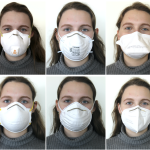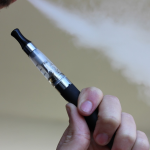As fewer individuals pick up cigarettes, more are picking up vape cartridges. Over time, some smokers move on to vaping, while some vapers move on to smoking; the gate swings in both directions. Does perhaps the gate swing more one way or another? Authors of a new study offer what they've learned.
Harm Reduction
It is seemingly such an easy question: if I need an ambulance, what will it cost me? Unfortunately, there's only a complex answer, summarized as “it depends.”
Masking to prevent COVID infections has diminished drastically, even in healthcare settings, and there are already examples of its negative effects. Across-the-board abandonment of masking is premature: It is effective, inexpensive, not terribly inconvenient, and applicable to preventing airborne and droplet-spread infections in addition to COVID. Most important, it is in the best interest of staff, patients, and public health.
One of the judgments made by scientists is how to aggregate or segregate data – especially when it comes to changing a continuous variable like age – into separate bins (10 to 18, 19 to 34, etc.). Race/ethnicity as a category has come in for some well-deserved criticism. Leave aside the argument that it is a social construct, race/ethnicity contains too many confounding features. A study in Nature points to a new way to break the category into meaningful segments.
Earlier this month, the headline “New Study Finds PFAS 'Forever Chemicals' in Drinking Water from 45% of Faucets Across US” led many news reports. That's after 32 individual PFAS were tested and found in both private and public water supplies, presenting potential hazards to our nation’s health. What did the study really say?
While academics explore the bounty and pitfalls that Artificial Intelligence (AI) offers, and Big Tech continues to hype the possible over the actual, the feds seek to make regulations. Corporate healthcare, in all its forms, is fighting back. Should we be techno-optimists, Luddites, or somewhere in between?
The World Health Organization’s (WHO) International Agency for Research on Cancer (IARC) recently concluded that the popular artificial sweetener aspartame, widely used in foods and diet drinks, is “possibly carcinogenic to humans,” an alarming conclusion because aspartame is used in thousands of low-calorie products. However, another WHO organization, the Joint Expert Committee on Food Additives (JECFA), concluded that it is safe to consume aspartame. Can we make sense of the conflicting conclusions?
While some extol the psychological benefits of psychedelics and bemoan their unavailability, at least one FDA-approved agent with psychedelic properties, Ketamine, does exist. The problem is that it is being abused- and oversight is wanting.
The FDA’s assault on vaping has yielded devastating consequences. Not only have millions of adults been denied legal access to low-risk vaping products they rely on to stay smoke-free, federal regulations are rapidly destroying thousands of jobs and billions of dollars worth of income, depriving ordinary Americans of their livelihoods.
I’m at an age where I see doctors frequently enough that I noticed that the masks are gone. Will a surge in influenza or COVID this fall and winter bring masks back for all, or has COVID given us something other than a one-size-fits-all approach?
Conflict between Japan and China is not new. As the release of contaminated water from Fukushima into the Pacific Ocean has now been approved by the UN's International Atomic Energy Agency, China has issued warnings that this approval is insufficient. ACSH covered the underlying science last year; here is a reprise.
There are many shorthand rules and heuristics used in medicine. One of the classics: “When you hear hoofbeats, you don’t think of zebras.” It is a way of saying that, given a specific clinical presentation, you first look for the most common causes. A new paper in JAMA is concerned about those hoofbeats.











